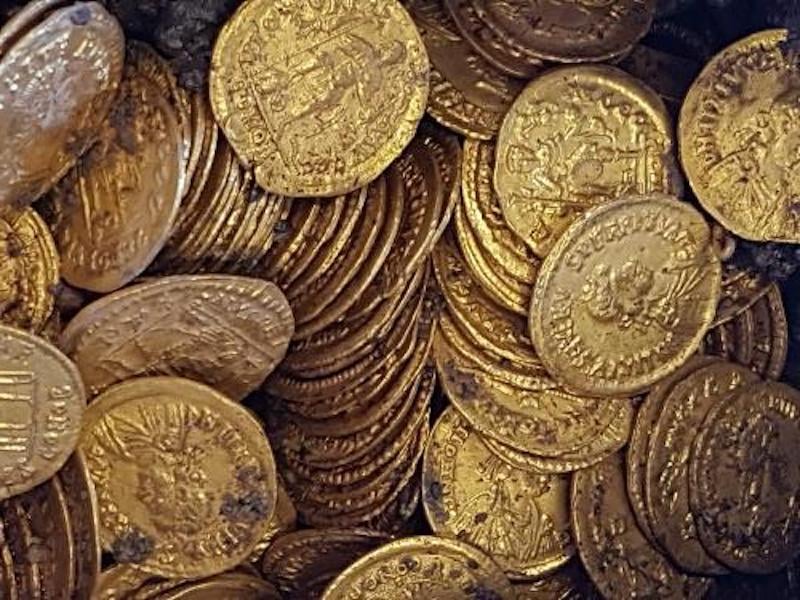
Italian archeologists just hit the jackpot—literally. A trove of hundreds of gold coins dating back to Rome’s Imperial era has been found in a soapstone jar unearthed in the basement of the Cressoni Theater in Como, Italy.
The coins were discovered last week, according to Ministry of Cultural Heritage and Activities. “We do not yet know in detail the historical and cultural significance of the find,” said Culture Minister Alberto Bonisoli in a press release. “But that area is proving to be a real treasure for our archeology. A discovery that fills me with pride.”
The coins have been transferred to a laboratory in Milan where archaeologists and restorers are analyzing them, according to CNN. Experts have not yet placed a value on the coins, but reports in the Italian media have speculated that they could be worth millions of dollars.
Credit: Ministry of Cultural Heritage and Activities
The find has both locals and experts tendering guesses as to the coins’ provenance. Grazia Facchinetti, a numismatist (or expert in rare coins), believes they may have originally been the property of a bank.
“[The coins] were stacked in rolls similar to those seen in the bank today,” she said at a press conference on Monday. “All of this makes us think that the owner is not a private subject, rather it could be a public bank or deposit.” Facchinetti also noted that the coins have engravings about emperors Honorius, Valentinian III, Leon I, Antonio, and Libio Severo “so they don’t go beyond 474 AD.”
The coins are not the first important discovery in the northern Italian area. Several other Roman artifacts have previously been found at the ancient city of Novum Comum, not far from the former theater site. Luca Rinaldi, superintendent of fine arts for western Lombardy, told local media outlets that he thinks there could be more deposits in the area, which means the site will need to be carefully protected from looters.
The theater, which was opened in 1870 and then became a cinema until it shuttered in 1997, is currently being restructured by a private company for planned luxury residences. The project will now reportedly be put on hold to allow for further excavation. But despite the private ownership, this treasure—and any further discoveries—will remain in the possession of the state.
See more pictures of the soapstone jar and the coins below.
Credit: Ministry of Cultural Heritage and Activities
Credit: Ministry of Cultural Heritage and Activities